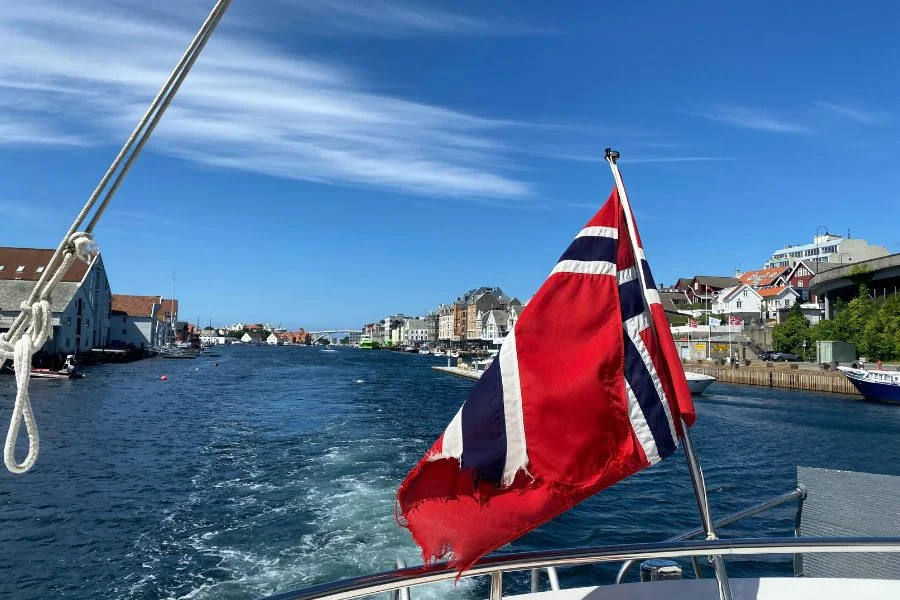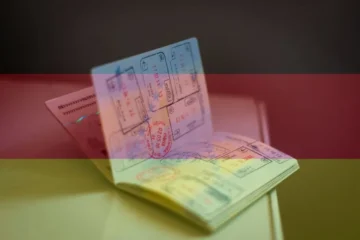Norway, with its breathtaking fjords, strong economy, and famously high quality of life, consistently ranks among the best countries in the world to live and work. For many foreign professionals, it’s not just a place for a short-term career move but a long-term dream destination. However, turning a work visa into permanent residency in Norway requires more than just time, as it demands consistency, compliance, and integration into Norwegian life.
Fortunately, Norway’s immigration system is structured in a way that rewards long-term workers who contribute to the economy, pay taxes, and adapt to local culture. If you’re already working in Norway or considering moving there, the pathway to permanent residency (PR) is clear, though it comes with detailed requirements.
Key Takeaways
Understanding the Norwegian Work Visa System
For non-EU nationals, the Norwegian work visa, officially called the Skilled Worker Residence Permit, is the most common entry route. This visa allows professionals with specific qualifications and a valid job offer from a Norwegian employer to live and work in the country legally.
Norway’s work visa categories primarily serve individuals in professions where skilled labor is in high demand, such as engineering, IT, healthcare, construction, and energy. To qualify, applicants must hold a relevant higher education degree or documented vocational training and be offered full-time employment that meets Norwegian salary standards.
Also Read: How to Get Permanent Residency in Norway
The Skilled Worker visa is typically granted for up to two or three years and can be renewed as long as the employment continues. Each renewal contributes toward the total residence period required for permanent residency eligibility.
The Pathway from Work Visa to Permanent Residency
Once you’ve lived and worked in Norway on a valid residence permit for a continuous period, you may be eligible to apply for permanent residence (permanent oppholdstillatelse). For most applicants, this happens after three years of legal residence.
However, these three years must be uninterrupted, meaning you cannot have stayed outside Norway for long periods or allowed your residence permit to expire. All your work visa periods count toward PR eligibility as long as they were issued for full-time, legal employment.
During this time, applicants must also fulfill obligations such as paying taxes, maintaining a clean criminal record, and participating in mandatory language and social studies training, unless exempt.
Find Out Your Norway PR Eligibility Today— Submit Your Details
We connect you with trusted immigration experts who simplify the entire process — from paperwork to approval.
Integration and Language Requirements
Norway places strong emphasis on integration and cultural understanding for anyone seeking permanent residence. Applicants are generally required to complete 300 to 600 hours of Norwegian language instruction and 50 hours of social studies classes.
In some cases, if you already speak Norwegian or have studied in Norway, you can apply for exemptions. However, if you’re planning a long-term stay, learning the language is practically essential not only for PR but also for your everyday life and future employment growth.

Applicants must also pass the Norwegian language test (A2 level or higher) and a civic knowledge test, which covers basic facts about Norwegian laws, society, and values. These are mandatory steps before submitting your permanent residency application.
The Permanent Residency Application Process
Once you meet the residency and integration requirements, you can submit an application for permanent residence to the Norwegian Directorate of Immigration (UDI).
The process involves providing:
- A valid passport and a residence card.
- Proof of continuous legal residence for at least three years.
- Documentation of completed language and social studies courses (or exemption).
- Tax statements and employment contracts showing consistent income.
- A clean police certificate confirming no criminal offenses.
The UDI reviews applications carefully, focusing on whether the applicant has maintained stable employment and self-sufficiency. Most applications are processed within three to six months, though timelines may vary depending on individual circumstances.
Once granted, a permanent residence permit allows you to live and work in Norway indefinitely, with renewals every two years purely for administrative purposes.
Challenges Foreign Workers Commonly Face
While the system is straightforward, the transition from temporary work permit to permanent residency isn’t always smooth. One of the biggest challenges is continuity because any gaps in residence or missed permit renewals can reset your eligibility timeline.
Also Read: Are You Meeting Norway’s New Income Rules for Skilled Workers?
Another challenge is the language requirement. Although many workplaces function in English, Norwegian authorities expect PR applicants to demonstrate local language proficiency. Skipping classes or failing language exams can significantly delay approval.
Additionally, short-term contract workers or those who change employers frequently may struggle to prove continuous, stable employment. Since Norway’s immigration laws link residence rights closely to job status, it’s important to plan career transitions carefully.
Why Permanent Residency in Norway Is Worth It
The benefits of permanent residency in Norway are substantial. It provides full access to the national welfare system, including healthcare, education, and family benefits. You are no longer tied to a specific employer, meaning you can freely change jobs or start your own business.
PR holders also gain travel flexibility within the Schengen Area, with no need for additional visas for short stays. Moreover, after holding permanent residence for several years, you can apply for Norwegian citizenship, one of the most powerful passports in the world.
The lifestyle benefits are equally appealing. Norway offers clean cities, world-class public services, and a work culture that values balance and personal well-being. For many, gaining permanent residence feels like earning a place in one of the most livable societies on Earth.
Final Thoughts
Getting permanent residency in Norway through a work visa isn’t automatic, but it’s a realistic goal for those who approach it strategically. If you can maintain continuous employment, comply with tax and residence rules, and commit to learning the language, the Norwegian system will reward you with long-term stability.
The country’s immigration model values integration and contribution over quick fixes. It’s built to welcome professionals who not only work in Norway but genuinely want to be part of its society. For those who meet that vision, permanent residency becomes not just a permit but an invitation to stay, thrive, and call Norway home.
Reference: https://www.udi.no/en/word-definitions/permanent-residence-permit/





